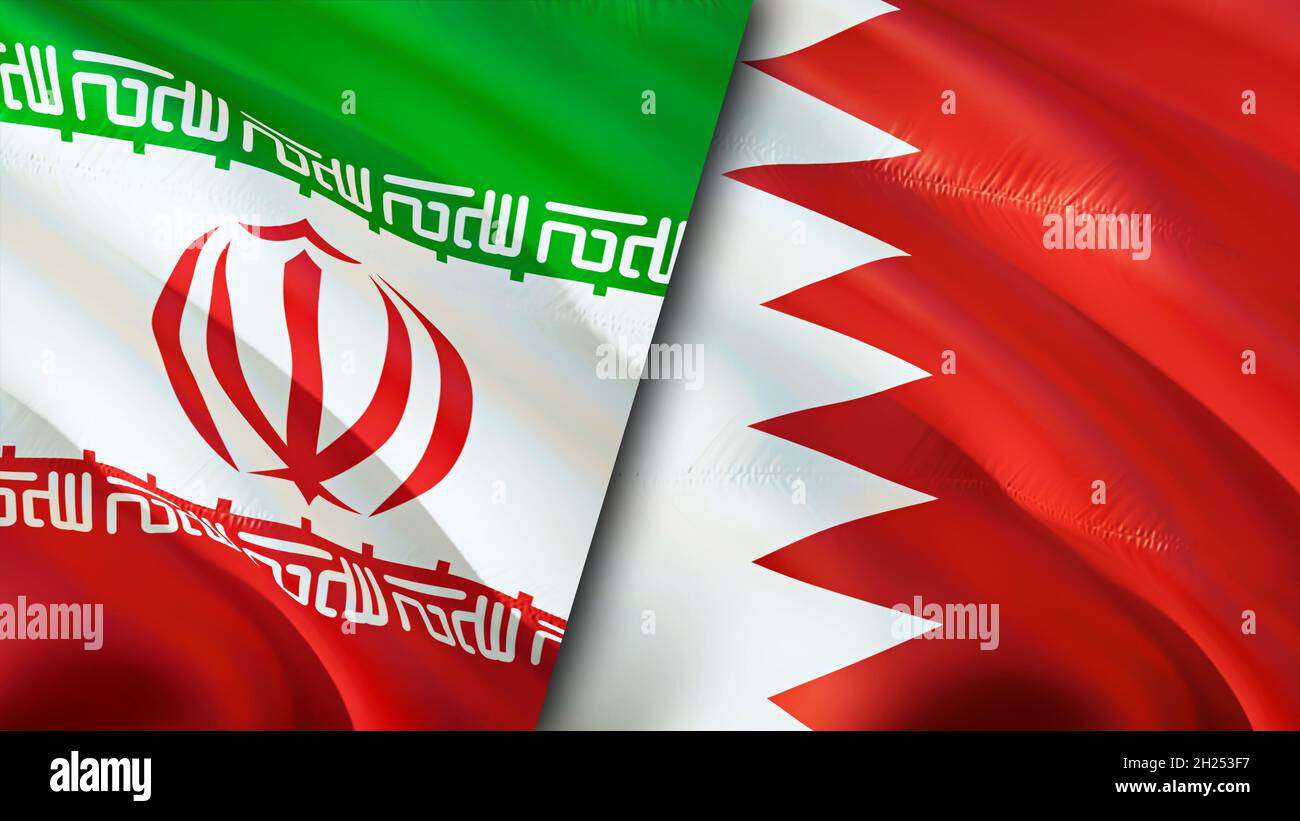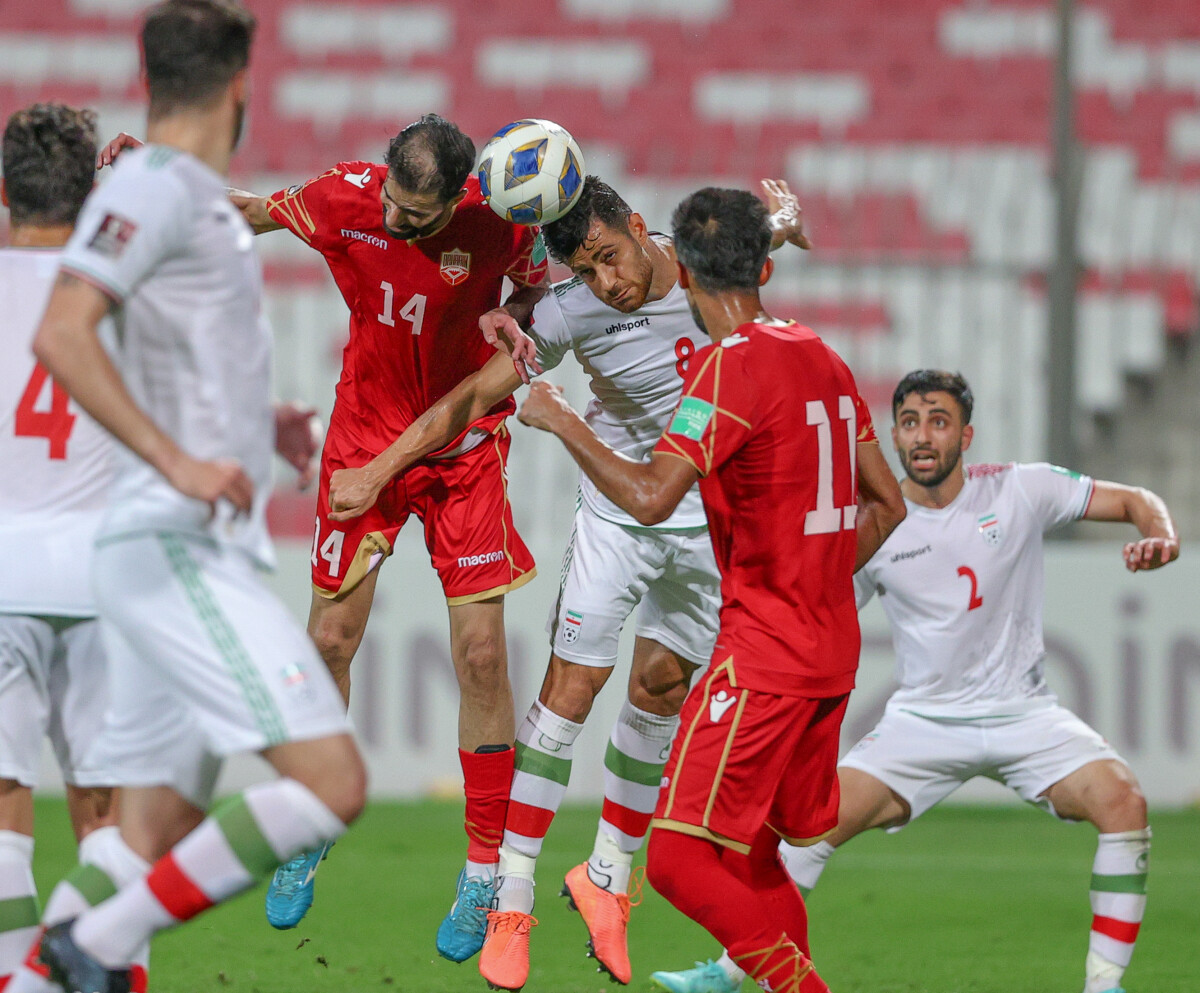Bahrain And Iran: Navigating A Complex Path To Reconciliation
The relationship between Bahrain and Iran has long been a delicate and often contentious dance, marked by historical ties, ideological divides, and shifting geopolitical currents. For decades, the dynamics between these two Gulf nations have reflected broader regional tensions, with moments of cautious engagement interspersed with periods of profound strain. Understanding the intricate layers of their bilateral relations is crucial to grasping the wider stability of the Middle East. From the aftermath of the 1979 Iranian Revolution to recent diplomatic overtures, the narrative of Bahrain and Iran is one of persistent challenges and, perhaps, a burgeoning, albeit fragile, hope for a more stable future.
This article delves into the historical roots of their strained ties, explores the multifaceted issues that have fueled mistrust, and examines the recent efforts towards a potential renormalization of their relationship. We will analyze the geopolitical factors at play, the perceived threats, and the cautious optimism surrounding the latest diplomatic breakthroughs. By dissecting the core elements that define the relationship between Bahrain and Iran, we aim to provide a comprehensive overview of this vital regional dynamic.
Table of Contents
- Historical Roots of Strain: Bahrain and Iran's Divergent Paths
- The Ideological Divide: Interpretations of Islam and Regional Influence
- The Geopolitical Chessboard: Bahrain, Iran, and Western Powers
- Perceptions of Threat: Iran's Efforts and Bahrain's Concerns
- The Nuclear Shadow: Regional Fears and Potential Repercussions
- A Cautious Diplomatic Thaw: Bahrain and Iran Agree to Talk
- Substance or Rhetoric? The Nuances of Renormalization
- The Path Forward: Challenges and Opportunities for Bahrain and Iran
Historical Roots of Strain: Bahrain and Iran's Divergent Paths
The historical tapestry woven between Bahrain and Iran is rich and complex, predating modern statehood. For centuries, the Persian Empire exerted varying degrees of influence over the islands of Bahrain, leaving a significant cultural and demographic imprint. However, the modern era, particularly after the mid-20th century, saw Bahrain assert its independence, culminating in a 1970 United Nations-sponsored survey that confirmed the Bahraini people's desire for sovereignty, which Iran, then under the Shah, ultimately accepted. This acceptance was a crucial step, yet it did not entirely erase historical claims or underlying suspicions. The true turning point, as noted in the provided data, arrived with the 1979 Iranian Revolution. This seismic event transformed Iran from a monarchy with close ties to the West into an Islamic Republic founded on revolutionary principles. The new Iranian government, driven by its revolutionary ideology, sought to export its vision of an "Islamic awakening" across the region. For Bahrain, a Sunni-ruled monarchy with a significant Shia population, this ideological shift in its powerful neighbor was perceived as a direct challenge to its internal stability and sovereignty. The revolution fundamentally altered the geopolitical landscape, casting a long shadow over the relationship between Bahrain and Iran, moving it from one of historical connection to one defined by ideological and political rivalry.The Ideological Divide: Interpretations of Islam and Regional Influence
One of the most profound sources of tension between Bahrain and Iran stems from divergent interpretations of Islam and, more critically, the role of religion in governance and regional affairs. While both nations are predominantly Muslim, the Shia-majority Iran, under its Khomeinist ideology, has often positioned itself as the vanguard of an "Islamic world awakening." This narrative, particularly after the 1979 revolution, resonated with some Shia communities across the Gulf, including in Bahrain. The ruling Al Khalifa family in Bahrain, a Sunni dynasty, views any perceived Iranian outreach to its Shia citizens as interference in its internal affairs and a direct threat to its legitimacy and national security. This ideological chasm is not merely theological; it has tangible geopolitical implications. Iran's support for various non-state actors and its vocal criticism of Gulf monarchies are often interpreted by Bahrain and its allies as attempts to destabilize the region and expand Iranian influence. Conversely, Iran views the close alignment of Bahrain with Western powers, particularly the United States, as part of a broader strategy to contain its regional ambitions. These differing worldviews, rooted in religious interpretation and political ambition, have created a deep-seated mistrust that has been exceedingly difficult to bridge, defining much of the interaction between Bahrain and Iran for over four decades.The Geopolitical Chessboard: Bahrain, Iran, and Western Powers
The relationship between Bahrain and Iran cannot be understood in isolation; it is deeply intertwined with the broader geopolitical chessboard of the Middle East, particularly concerning relations with the United States, Europe, and other Western countries. Bahrain hosts the U.S. Navy's Fifth Fleet, a critical strategic asset for projecting American power and ensuring maritime security in the Gulf. This close military and political alliance with the United States is a cornerstone of Bahrain's foreign policy and, from Tehran's perspective, a significant part of the "Western presence" it seeks to counter in the region. Iran, on the other hand, views the presence of Western military forces in the Gulf as a provocative act and a barrier to its own regional ascendancy. Its foreign policy is often characterized by anti-Western rhetoric and a drive to reduce external influence in the Persian Gulf. This fundamental divergence in strategic alignment—Bahrain's embrace of Western partnerships versus Iran's rejection of them—has been a constant source of friction. The more Bahrain strengthens its ties with the West, the more Iran perceives it as part of an adversarial bloc, and vice versa. This dynamic ensures that any shift in the global balance of power or in Western policy towards the region inevitably impacts the delicate equilibrium between Bahrain and Iran.Perceptions of Threat: Iran's Efforts and Bahrain's Concerns
Despite the prevailing tensions, there have been instances where Iran attempted to reassure Bahrain of its respect for sovereignty. The provided data highlights specific efforts, such as a trip by then-President Mahmoud Ahmadinejad to Manama and his foreign minister's participation in the 2009 and 2010 Manama Dialogue summits. These diplomatic gestures were ostensibly aimed at fostering dialogue and alleviating Bahraini concerns. The Manama Dialogue, a key regional security forum, provided a platform for direct engagement, allowing high-level Iranian officials to articulate their country's positions and, perhaps, try to soften Bahrain's perception of a threat. However, these episodes, rather than building trust, inadvertently reinforced Bahrain’s perception of Iran as a threat. The underlying issues—Iran's regional activities, its ideological rhetoric, and concerns about its influence over Shia communities—were too deeply entrenched to be overcome by a few high-level visits or appearances at a summit. Bahrain likely viewed these overtures with skepticism, seeing them as part of a broader Iranian strategy rather than a genuine shift in policy. The persistence of perceived interference, coupled with the ideological differences, meant that even direct engagement failed to alter Bahrain's fundamental assessment of Iran as a significant security challenge. This entrenched perception of threat has been a major impediment to any meaningful improvement in the relationship between Bahrain and Iran.The Nuclear Shadow: Regional Fears and Potential Repercussions
The specter of Iran's nuclear program casts a long and unsettling shadow over the entire Gulf region, profoundly influencing the security calculations of states like Bahrain. The data explicitly highlights the rising concern in Gulf Arab states about the possibility of environmental contamination or reprisal attacks if Israel or the United States strikes Iran’s nuclear facilities. These facilities are located just across the Gulf, meaning that any military action, whether by design or accident, could have immediate and devastating consequences for Bahrain and its neighbors. The proximity of Bahrain to Iran makes it particularly vulnerable to the fallout of any conflict. An environmental catastrophe, such as a major oil spill or chemical release resulting from an attack on nuclear or industrial sites, would directly threaten Bahrain's vital marine ecosystems, desalination plants, and economic infrastructure. Furthermore, the risk of reprisal attacks by Iran, potentially targeting U.S. military assets in Bahrain or Bahraini infrastructure, is a constant worry. This existential threat amplifies Bahrain's security concerns and underscores the urgency of regional de-escalation. The nuclear issue, therefore, is not merely a global or Israeli-Iranian concern; it is a direct and immediate security dilemma for Bahrain and its Gulf allies, compelling them to monitor developments closely and seek pathways to regional stability.A Cautious Diplomatic Thaw: Bahrain and Iran Agree to Talk
After nearly eight years of severed diplomatic ties, a significant development emerged recently: Iran and Bahrain have agreed to begin talks aimed at restoring bilateral relations. This breakthrough was reported by Iranian media and confirmed by Bahraini officials, following a meeting between their foreign ministers in Tehran. The fact that such a high-level meeting occurred, specifically to discuss the resumption of political relations, marks a notable shift from the prolonged period of estrangement. The last time relations were at such a low point was in 2016, when Bahrain, following Saudi Arabia's lead, cut diplomatic ties with Iran amidst heightened regional tensions, including the storming of the Saudi embassy in Tehran. The recent agreement signals a potential de-escalation of tensions in the Gulf, mirroring broader regional trends towards dialogue and reconciliation. This move comes amid a flurry of diplomatic activities in the Middle East, including the Saudi-Iranian rapprochement facilitated by China. For Bahrain and Iran, this agreement to talk represents a crucial first step towards rebuilding channels of communication that have been largely dormant. While the path to full normalization remains long and fraught with challenges, the willingness of both sides to sit at the negotiating table suggests a mutual recognition that prolonged antagonism serves neither country's long-term interests. The meeting between Bahrain's King Hamad bin Isa Al Khalifa and Iranian Foreign Minister Abbas Araghchi in Manama further underscored this willingness, amid persistent fears of potential conflict in the region.Substance or Rhetoric? The Nuances of Renormalization
While the agreement between Bahrain and Iran to discuss resuming relations is a positive sign, the provided data offers a crucial caveat: a renormalization of their relationship could lack significant substance and would mostly be about restraint in rhetoric. This insight suggests that while diplomatic channels may reopen and ambassadors might eventually be exchanged, a fundamental shift in the underlying dynamics or a resolution of deep-seated ideological differences is not immediately expected. The primary goal, at least initially, appears to be managing the public narrative and reducing inflammatory statements that could escalate tensions. This cautious assessment reflects the profound mistrust and historical grievances that have accumulated over decades. Merely talking about resuming relations does not erase the past or resolve the core geopolitical issues, such as Iran's regional influence, its nuclear program, or Bahrain's alliances with Western powers. Instead, it indicates a pragmatic approach where both nations recognize the dangers of unchecked hostility. The focus on "restraint in rhetoric" implies a desire to lower the temperature, prevent miscalculations, and create a more predictable environment, even if genuine reconciliation remains a distant prospect. This nuanced view is essential for understanding the true scope and limitations of the current diplomatic thaw between Bahrain and Iran.Managing Expectations: Beyond Grand Gestures
The emphasis on "restraint in rhetoric" underscores the need for managing expectations regarding the immediate outcomes of these talks. It suggests that grand gestures or immediate breakthroughs on contentious issues are unlikely. Instead, the process will likely be incremental, focusing on practical steps that reduce friction rather than resolving fundamental disagreements. This could include re-establishing consular services, resuming direct flights, or facilitating trade, all while avoiding public condemnations or accusations. For Bahrain, this approach might mean a reduction in perceived Iranian incitement or interference in its internal affairs. For Iran, it could mean a more stable western flank and potentially less pressure from a united Gulf front aligned against it. Both sides stand to gain from a more predictable relationship, even if it remains characterized by underlying suspicion. The success of this renormalization will depend less on dramatic declarations and more on consistent, quiet diplomacy aimed at de-escalation and pragmatic cooperation where common interests align, rather than attempting to bridge the deep ideological chasm that separates Bahrain and Iran.Regional Implications of Renewed Ties
The potential renormalization of relations between Bahrain and Iran carries significant regional implications. Bahrain is a close ally of Saudi Arabia, and its decision to engage with Iran mirrors a broader trend of de-escalation in the Gulf, notably the Saudi-Iranian rapprochement. This collective shift towards dialogue suggests a regional desire to move away from confrontation and focus on economic development and internal stability. If Bahrain and Iran successfully manage to reduce tensions, it could contribute to a more stable and predictable security environment across the Persian Gulf. A more stable relationship could also reduce the likelihood of proxy conflicts or indirect confrontations, which have plagued the region for years. While it won't resolve all regional flashpoints, a direct line of communication between Manama and Tehran can serve as a crucial circuit breaker in times of crisis. This cautious step towards reconciliation by Bahrain and Iran reflects a growing regional consensus that sustained conflict is unsustainable and that diplomatic engagement, however limited, is preferable to continued animosity.The Path Forward: Challenges and Opportunities for Bahrain and Iran
The agreement to talk marks a significant, albeit preliminary, step for Bahrain and Iran. The path forward, however, remains fraught with challenges. Decades of mistrust, fueled by ideological differences, geopolitical rivalries, and perceived threats, cannot be easily overcome. Any progress will require sustained political will, careful diplomacy, and a commitment from both sides to prioritize stability over confrontation. The immediate focus will likely be on establishing basic diplomatic protocols and ensuring that rhetoric does not undermine the fragile goodwill. One of the primary challenges will be managing the expectations of both internal and external stakeholders. Hardliners in both countries may view rapprochement with suspicion, while regional and international allies will closely monitor the implications for broader security architectures. The success of this initiative will hinge on the ability of Bahrain and Iran to navigate these complex internal and external pressures while finding common ground on issues of mutual interest, such as maritime security, environmental cooperation, and regional economic integration.Building Trust in a Fragile Environment
Building trust between Bahrain and Iran will be a long and arduous process. Trust is not simply restored by resuming diplomatic ties; it is earned through consistent actions and verifiable commitments. For Bahrain, this means seeing a tangible reduction in perceived Iranian interference in its internal affairs and a more respectful approach to its sovereignty. For Iran, it might involve a greater understanding of Bahrain's security concerns and its legitimate alliances. The initial talks will likely focus on low-hanging fruit—areas where cooperation is mutually beneficial and less politically charged. This could include discussions on regional maritime safety, particularly in the Strait of Hormuz, or even cultural exchanges, which could help bridge the divide at a societal level. Only through such incremental steps, consistently applied over time, can a foundation of trust begin to be laid, allowing the relationship between Bahrain and Iran to evolve beyond mere rhetorical restraint.Economic Potential and Shared Interests
Beyond the immediate security concerns, there is also an underlying economic potential that could motivate a more stable relationship between Bahrain and Iran. While direct trade might not be substantial immediately, a de-escalation of tensions in the Gulf benefits all regional economies by reducing risk premiums, encouraging investment, and facilitating trade routes. Both countries could find common ground in areas like energy cooperation or regional infrastructure projects if political relations improve sufficiently. Furthermore, environmental challenges, such as pollution in the Persian Gulf, are shared concerns that transcend political differences. Cooperation on these issues could provide a practical avenue for engagement and demonstrate a willingness to work together on non-security matters. While the primary drivers for the current rapprochement are undoubtedly geopolitical, the long-term stability of the relationship between Bahrain and Iran could eventually unlock economic opportunities that benefit both nations and the wider region. In conclusion, the recent agreement between Bahrain and Iran to discuss resuming diplomatic relations is a significant step in a complex and often turbulent relationship. While the path to full normalization is long and fraught with historical baggage and geopolitical challenges, the willingness to engage in dialogue signals a pragmatic shift towards de-escalation. The focus on "restraint in rhetoric" suggests a cautious approach, prioritizing stability and predictability over immediate resolution of deep-seated issues. The future of Bahrain and Iran's relationship will be a critical barometer for regional stability, and its trajectory will be closely watched by all stakeholders. What are your thoughts on the future of Bahrain and Iran's relations? Do you believe a genuine reconciliation is possible, or will it remain a relationship primarily defined by cautious pragmatism? Share your insights in the comments below, and explore our other articles on Middle Eastern geopolitics for more in-depth analysis.- Iran Vs Israel Who Would Win Yahoo Answers
- Iran Lnguage
- Iran Vs Saudi Arabia Vs Israel
- Guerra Iran Vs Israel Hoy
- Israel Vs Iran Via Syria Good Or Bad

Iran and Bahrain flags. 3D Waving flag design. Bahrain Iran flag

Group C: BAHRAIN vs IR IRAN

IR Iran v Bahrain-Asian Qualifiers